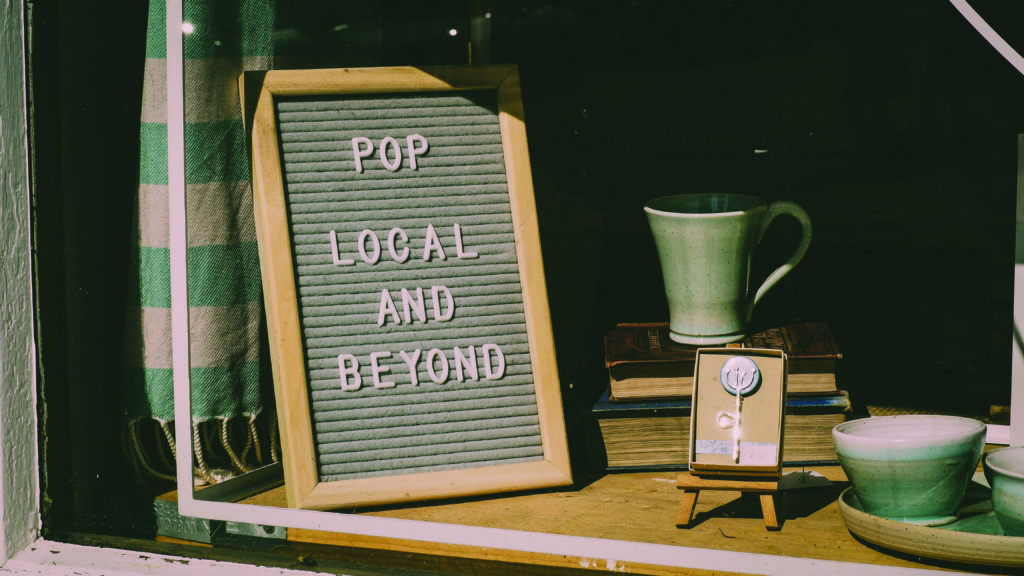Advertisement
What We All Learned in 2020
This year held seismic shifts and smaller life lessons for everybody. Some will stick with us for a long time.

Very few, if any, of us foresaw this past year shaping up to be the year that it was. Who could have predicted closed travel borders? Or shuttered schools and shopping malls? Or that a bottle of hand sanitizer would become the most-coveted possession around? (“Hold your Rolex; I’ve got Purell.”)
But despite its difficulties, tragedies, and shared social grief, 2020 also held moments of self-discovery and growth.
It empowered us to unlock our inner Martha Stewart as we crafted and planted and cooked and baked.
It pulled back the curtain on how we cope with stress (perhaps opening our eyes to how some of our coping mechanisms might not be ideal).
It prompted us to be more conscious consumers.
And so much more.
As we run toward 2021 with open arms, I want to forget a lot of 2020. But there are eight lessons I want to remember.
- Preventive health is king.
In January, most of us had a cursory understanding of how germs spread. By April, we were casually throwing around terms like “herd immunity” and “incubation period” as if we were Mayo Clinic medical interns.
It was suddenly in vogue to brag about how diligent we’ve been at social distancing and personal hygiene. If we can stick with these new hygiene habits, it’ll bode well for us, whether we’re talking about the common cold or more serious diseases.
We also began taking nutrition more seriously. Because of the pandemic, sales of immunity supplements jumped by 25 percent, led by old standbys like vitamin C, as well as newer trends like probiotics.
Other immune-boosting supplements that many of us discovered in 2020 include vitamin D, zinc, and elderberry. These supplements don’t just support our immunity—they may specifically help with viral infections and upper respiratory symptoms.
As the pandemic grew, half of all consumers said they were increasing their use of immunity supplements, and 20 percent of people who had never taken supplements before were planning to start for the very first time.
- We’re all America’s next top chef.
Remember when Pinterest was less of a to-do list and more of a dream board?
But then society shut down, and with hours of free time, we became master chefs: 54 percent of us say we’re cooking more, and 46 percent of us say we’re baking more.
There was the sourdough trend that stretched our expectations to absurd limits. (Global yeast shortage? Check. Fascination with “exotic” sourdough yeast from the Oregon Trail or the Yukon’s Gold Rush? Check.)
And who can forget whipped coffee, which started as a viral online video that has since racked up tens of millions of views?
Some theorize that this obsession with baking and cooking is a type of meditation, distracting us from the turmoil outside the kitchen. Or perhaps the ability to handcraft and enjoy something new gives us a sense of optimism and control when everything else feels chaotic.
Whatever the psychological cause, this shift is here to stay. A third of us say that even after the pandemic is over, we’ll continue to make more home-cooked meals and dine out less.
Need something new and scrumptious to post on social media and make your friends envious? Check out <alive.com>’s recipe section for your latest inspiration. Start with the Crusty Sourdough Italian Loaf, obviously: <alive.com/recipe/crusty-sourdough-italian-loaf.
- We might like our “quarantinis” a little too much.
By late March of this year, alcohol sales in stores had jumped by 54 percent year over year. In April, a survey of American adults found 16 percent were drinking more (that figure rose to 25 percent for millennials and gen Xers).
“People are drinking alone more frequently, earlier in the day or evening, and potentially more in quantity,” says behavioral psychologist Dr. Michael Mazius. “COVID-19 has created considerable stress for many. At the end of the day, a drink or two can feel like a just reward or relief.”
The occasional drink may be fine for some, but over-relying on alcohol can be detrimental long term.
“People are far better off exercising, finding a meditation practice, and socializing (at a distance),” says Mazius. “Those are far better habits to develop than daily alcohol use.” Supplements like adaptogens and magnesium may also help us cope with the stress that comes from trying times.
A systematic review of 104 clinical trials found that listening to music has a significant effect on reducing stress. Dr. Manisha Singal, a frontline COVID-19 critical care doctor, says singing her favorite tunes helps calm her down. “One of my favorite sing-along songs is ‘I Will Survive,’” she notes. A bit on the nose, but we like it.
- Malls are out; small businesses are in.
We’ve made sweeping changes to our shopping habits in 2020.
As everyday life ground to a halt, Americans flocked online. Brick-and-mortar retail sales in America dropped by an estimated 14.5 percent this year, while online sales grew by about 18 percent.
The pandemic also reconnected many of us to the importance of taking care of our own.
Consumer behavior studies found that more of us chose to shop with a conscience during 2020, prioritizing local vendors and local sustainable products. And many shoppers now say they’re more focused on buying food that’s healthy, perhaps recognizing how diet affects their immunity and COVID-19 risks.
Throughout the year, we saw how global supply chains and shipping can quickly freeze up due to factors beyond our personal control. Supporting local businesses, farms, and craftspeople creates more economic and food security for all of us at home.
For every dollar that you spend at a local small business, 67 cents are reinvested in your local community and another 50 cents of additional business activity get shared within your community.
- Work will never be the same.
I used to commute two hours to work. Now, my biggest traffic jam is a pile of my toddler’s toys in the hallway.
The number of Americans working from home doubled from mid-March to early April 2020, and many businesses expect to continue this new work-from-home model long after the pandemic is over.
Working from home has given us many benefits, including more freedom and flexibility, but it also comes with drawbacks … like Zoom faux pas. From the obvious—don’t forget to put on pants—to the not so obvious, navigating Zoom meetings is an art unto itself.
- Grab a lamp. Too many of us have bad lighting that makes it look like we’re in witness protection.
- Use that mute button. No one needs to hear you typing or going to the bathroom.
- Log on a few minutes early. No matter how tech savvy you are, there <will> be hiccups.
The number of people using video conferencing app Zoom jumped by 378 percent this year. Other online service providers, like Microsoft, saw similar spikes in usage.
- DIY is here to stay.
The Home Depot’s sales went up by 23 percent during the fiscal second quarter of the year, and the company attributed this to people investing in pandemic home projects like painting the spare bedroom or building a backyard deck. Other home hardware and craft supply stores reported similar trends.
The factors are manifold. For some, lockdowns finally gave us time to finish that project we’ve been putting off. It’s also been a way to keep the whole family entertained and busy when parks, movie theaters, and other traditional forms of entertainment are curtailed or shut down.
For others, it’s an outlet for the energy and ingenuity we might have otherwise poured into other endeavors. For instance, we’re seeing a rise in DIY labs, where people are experimenting with everything from DIY beer brewing to DIY insulin production.
If necessity, as Plato said, is the mother of invention, the necessary changes forged in this pandemic will shape how we view DIY and our own sense of independence and invention.
Never tried DIY before? To be successful (and build your self-confidence), pick a project that isn’t pricey, can be done in one afternoon, and won’t burn down your house if you mess it up. Think sanding and staining old furniture, painting a kid’s bedroom, or replacing that scuffed-up crown molding.
Immune health has been a hot topic in 2020. We’ve been paying close attention to our body’s defenses in light of the many viral challenges out there. Here are some of the top products and supplements we’ve discussed in the pages of <alive>:
- aged garlic extract
- echinacea
- elderberry
- ginger
- quercetin
- probiotics
- vitamin C
- vitamin D
- zinc





